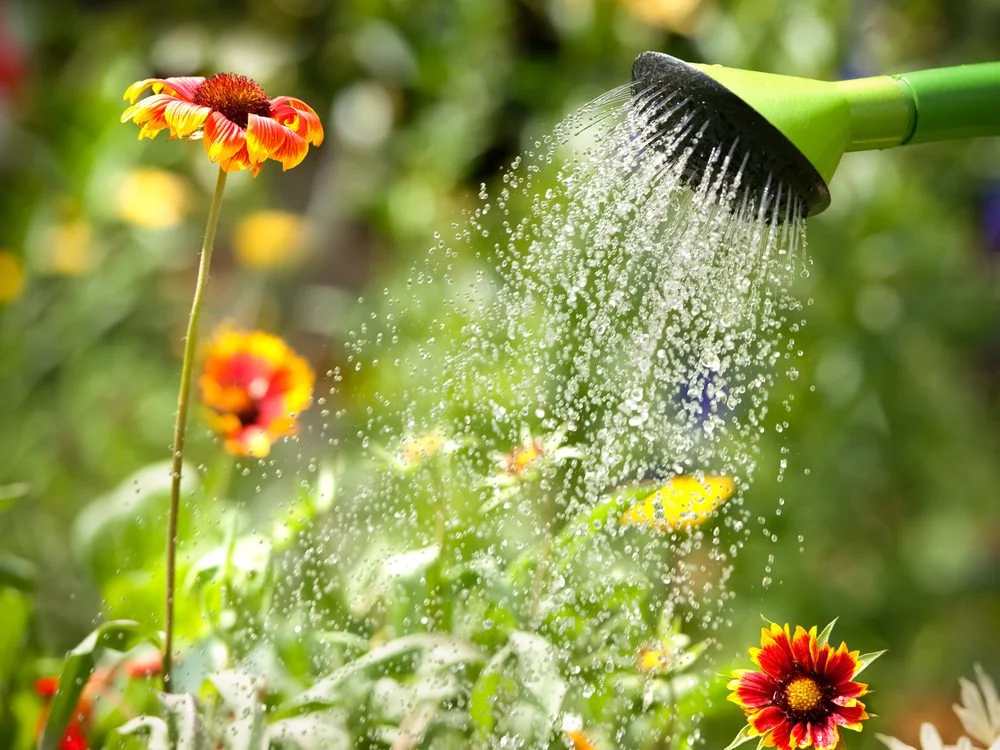How To Take Care Of Your Garden in Summer?
How to take care of your Garden in Summer? If you are looking for the answer to this question, you are at the right place. Well! Gardening is one of the most beautiful things a person can do in this world. I mean who does not like to cultivate plants, herbs, and flowers? Gardening is the exercise of cultivating and tending to plant life. Normally in an outdoor system but also indoors to create and preserve a lawn. It involves a huge range of activities associated with plant care, including planting, weeding, watering, fertilizing, and harvesting. It can be done outdoors in the open soil or containers.
Gardening can be done in any season of the year whether it’s spring, summer, autumn, or winter. It requires a lot of knowledge to take care of your garden in different seasons of the year as the different seasons require different strategies for taking care of your garden.
Summer season may be the hardest time of the year for gardeners. Seeing that flora thrive in moisture, drier climates can take a toll on the fitness of flowers and flora. Through the quilt of December and through January and February, the combination of extreme warmness and the shortage of rain can affect both plant increase and survival. Summer is a time when the growth of plants and greenery in the garden is at its peak.
However, it’s also a season when the sun’s fiery rays and high temperatures can present challenges for your garden. It’s that time of year when the days get longer and the heat goes up. Yes, the warmest season of the year is finally here! As far as the health of plants is concerned, the summers can be a tough time, if they do not get proper care.
How To Take Care of Your Garden In Summer?
To ensure your garden remains thriving well throughout the summer, it’s essential to adopt a comprehensive approach to garden care. In this guide, we’ll discuss various aspects of summer garden care, providing you with the knowledge and strategies to keep your garden healthy and beautiful even in the hottest months of the year. Here we will tell you all the steps to take care of the garden in Summer.
Water Correctly In Your Garden:
During those hot summer months, it is best to water your garden in the morning before the sun rises. Watering plants after sun rise will cause water to evaporate before reaching plants roots so it’s better to water your plants before sunrise. Also, it’s vital to hydrate your plants nicely and deeply. Even though over-watering is an easy manner to kill your plants, the summer season’s warmness causes water to evaporate from the soil at a far quicker rate. That’s why make sure to water your plant life deep and gradually.
Furthermore, If you pour water inside the soil, it doesn’t get time to soak the water and it just drains through the drainage holes at the bottom if you water very little, only the topsoil gets wet while lower roots get dehydrated. Remember, the water is absorbed by watering slowly not all at once.
Promote High Humidity:
The low degree of humidity is a big concern for the container vegetation, specifically the ones that can be kept in the rooms. You could preserve the plants on the top of the shallow tray filled with water and pebbles.
Plant life that needs high humidity wants to be frequently misted via durations of warmth. You may also fill your planter’s base plate with pebbles or empty cans, fill it with water, and set your pot on top or group your plant life and put a bucket of water inside the center to create a bit of humid microclimate to your plant that will provide humidity and assist them through the summertime. The topsoil gets wet whilst the lower roots get dehydrated. Keep in mind, that the water is absorbed employing watering slowly.
Right Mulch Placement Of Your Garden in Summer:
Adding mulch to your garden will keep the soil protected from direct sun exposure and as a result, allow the soil to stay moist for longer. You may use many distinct styles of mulch, however, you’ll likely have the first-rate effects with a light-colored mulch, inclusive of dried grass clippings, because it’ll replicate the daylight. Use bark mulch around your shrubs. Wooden mulch is splendid because it will color the soil from the sun and spoil over time, including compost in your soil.
Pruning of Your Garden:
Everyday pruning and deadheading are important additives of summer lawn care. Deadheading, which involves putting off spent plants, encourages plant life to produce new blooms, extending the flowering season and selling a tidy appearance. Trim back overgrown or broken branches to enhance airflow, which facilitates saving you fungal sicknesses.
Pruning ought to be done strategically. Use easy, sharp pruning shears and reduce at a moderate angle simply above a node or leaf junction. This ensures proper healing and minimizes strain on the plant.
The purpose of pruning is to activate sparkling increase inside the plant life, but at some stage in the summers, it’s clever to both limit the pruning and entirely chorus from it. Just snip away the yellowing, antique, damaged, or deceased parts till the summertime passes
Fertilize Thoughtfully to your garden:
Summertime is a period of active increase for maximum plants, and they will benefit from additional vitamins. Pick a balanced, sluggish-launch fertilizer to offer vital nourishment without promoting immoderate growth. Comply with the advocated application fees at the fertilizer packaging and keep away from over-fertilizing, which could cause issues like nutrient burn.
Recollect natural fertilizers, along with compost or nicely-rotted manure, to certainly improve the soil. Those natural substances no longer handiest supply vitamins however also enhance soil structure and sell useful microbial pastime.
Do not Fertilize Plants During Heat Waves:
Although flowers are mainly fed within the springs and summers, however, keep away from feeding the plant at some point of warmth waves, because the plant life is unable to take in the nutrients in extraordinarily hot climates. So, watch for the temperature to stabilize and get a piece cooler after the heat wave to renew fertilization.
Pest and Disease Management in your Garden:
Summer warm temperatures can appeal to a selection of pests in your garden. Regularly look at your plants for signs and symptoms of infestations or sicknesses. Early detection and intervention are essential for powerful pest control. Every time possible, choose natural pest control methods. Encourage useful bugs like ladybugs and lacewings, which prey on lawn pests. You can additionally use bodily limitations like row covers to defend your plants from bugs at the same time as allowing airflow
If chemical intervention turns into important, choose organic or green pesticides as a remaining hotel. Usually follow the manufacturer’s instructions and exercise caution to decrease harm to beneficial insects and the surroundings.
Shade and Protection To Your Garden:
All through the cruel summertime, intense daylight can burn fragile plants. To tackle this, you can use a seashore umbrella, canvas, or color fabric in green or white shade. Avoid the usage of darker sun shades as they take in extra heat. Protect warmness-sensitive or sensitive plants from the intense midday solar. Create shade with the use of coloration cloths, umbrellas, or even taller plant life strategically positioned to forge color where needed. Brief coloration structures can be especially useful for potted flora and younger seedlings.
Take into account the use of row covers to guard your crops from pests and immoderate sun exposure. Row covers are light-weight fabric materials that permit daylight and air to bypass through even as presenting a protective barrier.
Proper Hygiene of your Garden in Summer:
Hold an easy and properly organized garden. Do away with fallen leaves, debris, and dead plant cloth, as these can end up breeding grounds for pests and sicknesses. Right lawn hygiene reduces the chance of infestations and helps hold your garden in top circumstances. Do not neglect weed control during the summer. Weeds compete along with your plants for water and vitamins. Frequently weed your lawn, and take into account the usage of mulch to suppress weed increase.
Weed your garden often:
Pesky weeds that infest your garden can take in all the water, leaving little for the plants for your garden which you want to hold nourished and hydrated. Weed your garden once every week for the excellent consequences, or twice a month on the bare minimum.
Conclusion:
So, With the proper method of summertime garden care, your garden can remain a flourishing haven of beauty and life, even in the face of sweltering temperatures. By gaining knowledge of the art of watering, mulching, pruning, fertilizing, and pest management. You may be well-ready to tackle the particular challenges of summer gardening. Put into effect these strategies, live vigilantly, and your garden will continue to thrive during the most up-to-date months of the year. Revel in the result of your labor. As you bask within the natural beauty and calmness of your summer season garden paradise.







